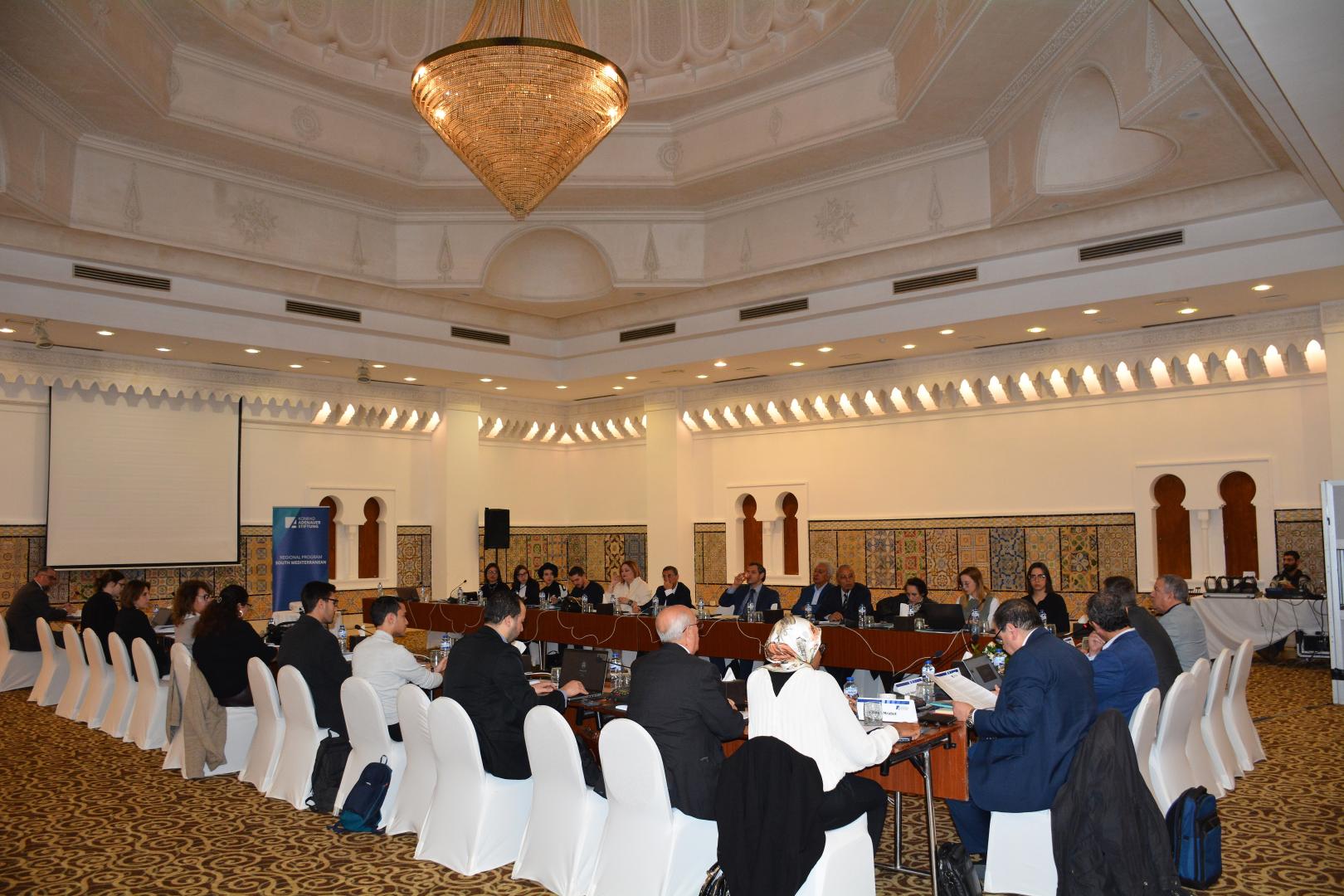On 19 December 2022, KAS PolDiMed organized two panel discussions in Tunis on two burning subjects that have been invading the public and political spheres in the Southern Mediterranean region. The event, “Food Security and Geopolitics in the Southern Mediterranean - Prospects and Challenges for 2023”, was attended by civil society actors, politicians and academia from Tunis and international envoys who reaffirmed their interest in the topics discussed and learned about the recent developments in the questions brought up.
In the first Panel, two sub-themes were discussed. Firstly, the “challenges of current crises on food security in North Africa” where Dr. Mohamed Amrani, Senior Policy Officer at the North Africa Regional Office of the FAO laid out the current situation of the food security in the region after the COVID-19 crisis and the war on Ukraine. Dr. Amrani listed the developments on the prices of food and agricultural products for the importing North African nations and the repercussions this has inflicted on their budgets and economies. The presentation deduced that the region and the world are at a risk of facing a food access crisis and a food availability crisis because of the current situation of a decline in the world supply the hike of the prices of some of the main food ingredients (e.g. wheat and corn) and the fertilizers needed for local agriculture.
The second presentation by Dr. Houssem Eddine Chebbi focused on the current state of Tunisian food security and the instability of the supply chain the country has witnessed over the last few years. Dr. Chebbi presented to the participants the Tunisian system of food subsidies and the challenges it has been facing because the current international and local crises. Dr. Chebbi made a distinction between the “apparent” and the “real” consumption of subsidized food products in Tunisia, the struggles of the Tunisian government in ensuring the availability of these products and the risks this entails on the social structure and the public budget of the country. Dr. Chebbi concluded his presentation with suggesting possible solutions to the issue and insisted on the importance of reforming the country’s subsidy system.
The second part of the event was dedicated to the geopolitics in the region and was presented by former Tunisian Ambassador Hatem Atallah and Youssef Cherif who started with a summary of the evolution of the political and the state of foreign relations in the Southern Mediterranean region and proceeded to lay out a forecast for the near future. Mr. Cherif concluded that the current geopolitical situation in the region has been branded by the international food and energy crises after the war on Ukraine and the ongoing democracy crises in the Arab countries. He also predicted that the near future of the region will retain the status quo with regards to the retreat of the European Union and other major international actors for the benefit of the regional powers that have been advancing during the last decade.
The final presentation by Ambassador Hatem Atallah reported on the state of the Euro-Mediterranean relations after the COVID-19 pandemic and the Russian war on Ukraine. He also listed the roles of the emerging regional powers in the South Med and the underlying tension between the USA and the rivaling Chinese-Russian block. Amb. Atallah concludes that for a more prosperous and peaceful future, Europe and its southern neighbors across the Mediterranean need to focus on reviving the Union for the Mediterranean Initiative and include the Sahel countries in any partnership. He also insists that the region should try to distance itself from the American and China-Russian tension and invest more in being proactive towards its own future prosperity.




